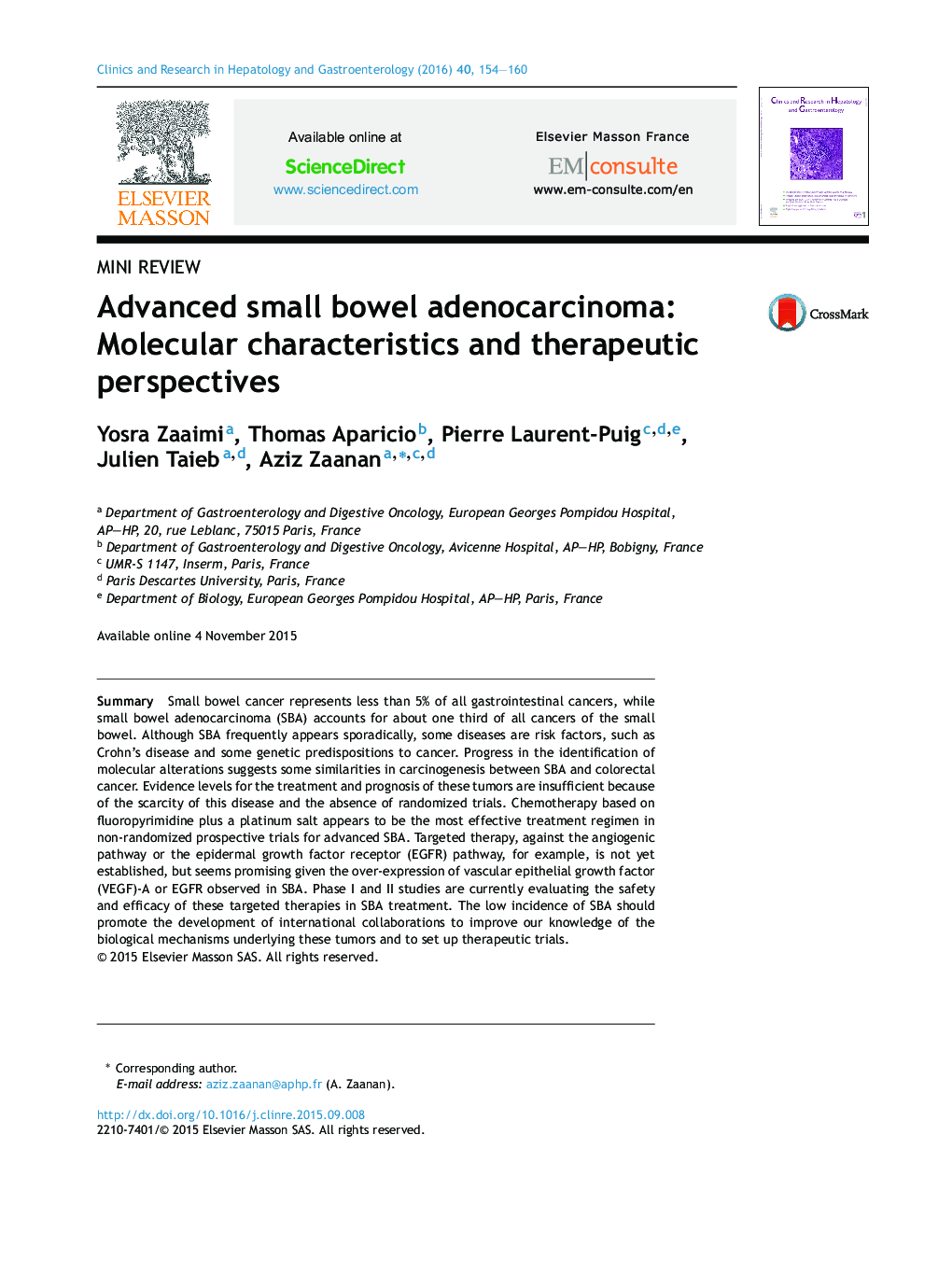| کد مقاله | کد نشریه | سال انتشار | مقاله انگلیسی | نسخه تمام متن |
|---|---|---|---|---|
| 3286022 | 1209279 | 2016 | 7 صفحه PDF | دانلود رایگان |
SummarySmall bowel cancer represents less than 5% of all gastrointestinal cancers, while small bowel adenocarcinoma (SBA) accounts for about one third of all cancers of the small bowel. Although SBA frequently appears sporadically, some diseases are risk factors, such as Crohn's disease and some genetic predispositions to cancer. Progress in the identification of molecular alterations suggests some similarities in carcinogenesis between SBA and colorectal cancer. Evidence levels for the treatment and prognosis of these tumors are insufficient because of the scarcity of this disease and the absence of randomized trials. Chemotherapy based on fluoropyrimidine plus a platinum salt appears to be the most effective treatment regimen in non-randomized prospective trials for advanced SBA. Targeted therapy, against the angiogenic pathway or the epidermal growth factor receptor (EGFR) pathway, for example, is not yet established, but seems promising given the over-expression of vascular epithelial growth factor (VEGF)-A or EGFR observed in SBA. Phase I and II studies are currently evaluating the safety and efficacy of these targeted therapies in SBA treatment. The low incidence of SBA should promote the development of international collaborations to improve our knowledge of the biological mechanisms underlying these tumors and to set up therapeutic trials.
Journal: Clinics and Research in Hepatology and Gastroenterology - Volume 40, Issue 2, April 2016, Pages 154–160
